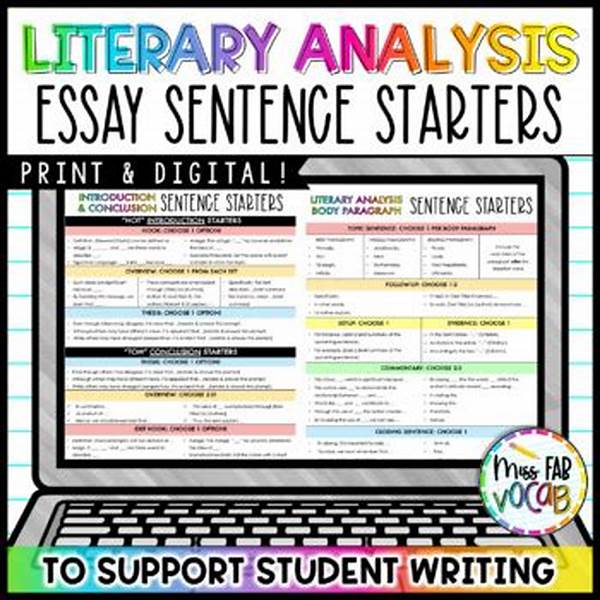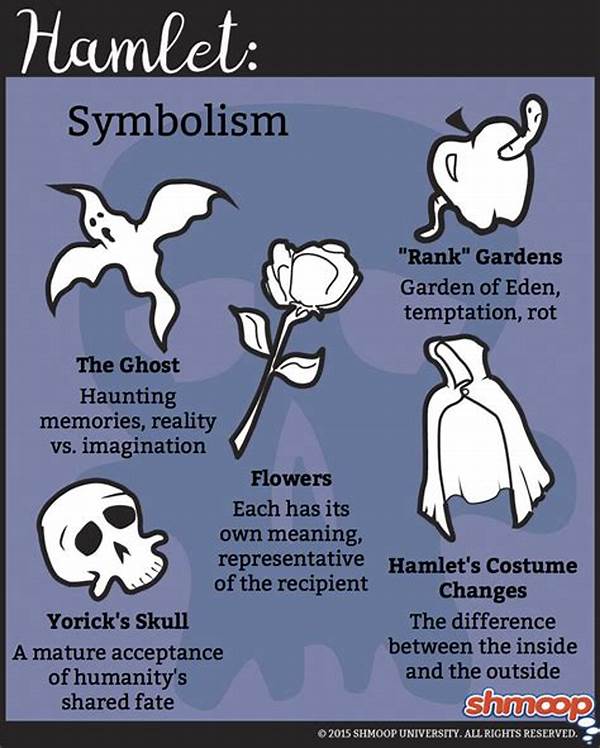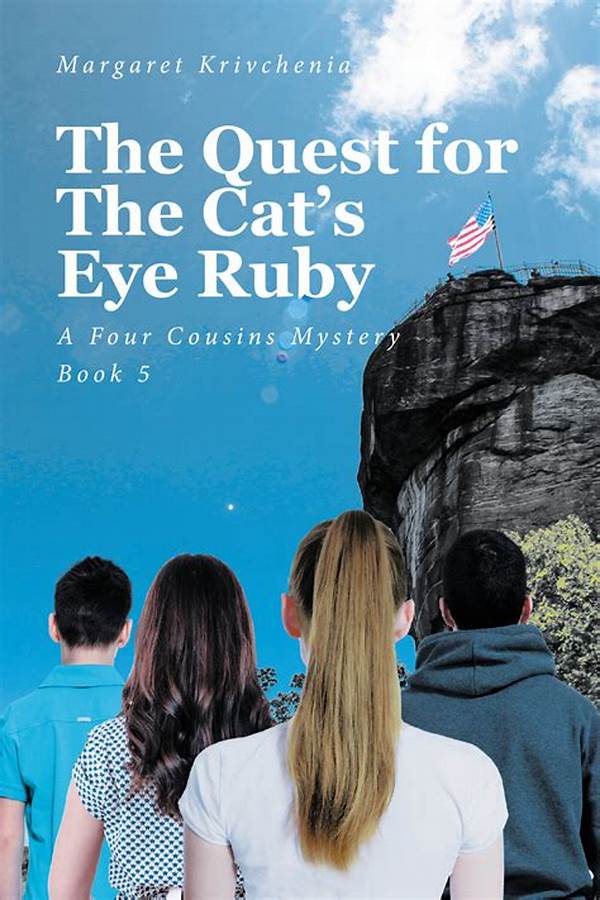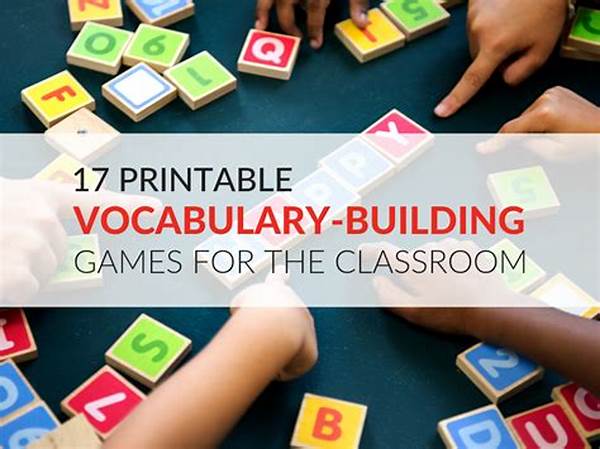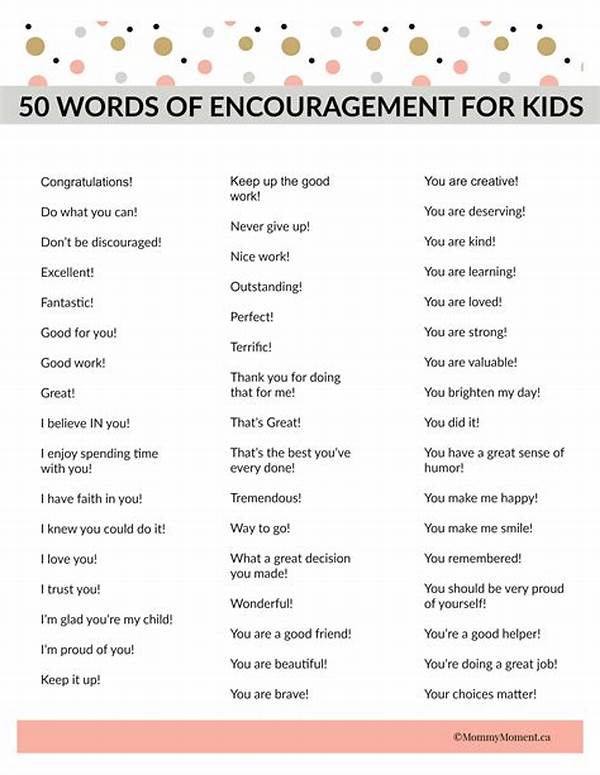Once upon a time, nestled in a cozy corner of a thriving city, there was a bookstore that was no ordinary place. It was a sanctuary where the scent of musty pages mingled with the whispers of thousands of stories, each waiting to be discovered. Gathered under the dim glow of vintage lamps, a vibrant band of bookworms and literary aficionados thrived. Their conversations were like jazz to a rainy day—full of riffs, tangents, and unpredictable twists. But even in a space so rich with words, there were moments when their tongues stumbled, and their thoughts became a tangle of unexpressed ideas. They were in dire need, it seemed, of some solid literary analysis conversation starters.
Read Now : Critical Thinking Across Languages
The Magic of Literary Analysis Conversation Starters
The art of literary analysis is akin to embarking on a journey without a map but equipped with the instinctive desire to explore. It’s not just about unraveling the evident plot points; it’s like engaging in an exhilarating dance with the text. Now, throw in some rad literary analysis conversation starters, and those discussions elevate beyond mundane interpretations to vibrant explorations. Imagine you’re dissecting the symbolism in “The Great Gatsby.” Sure, you could start with how that green light is like Gatsby’s elusive dreams, but what if you flipped the script? Ask, “Yo, if Gatsby had a modern day Insta, what would his vibe be and how’s that connect to his character?” Suddenly, you’re not just chatting plot lines; you’re weaving in cultural contexts and personal reflections. Literary analysis conversation starters are like a lit matchstick to kindle the fire of imagination and insight, making every book talk feel more like a thought buffet than a book report.
Exploring Slang in Literary Analysis Conversation Starters
1. “Low-key intrigued by how the author throws shade in this scene; what’s your take, man?” — This literary analysis conversation starter takes a casual approach to explore subtext and authorial intent.
2. “If this book was a song, what would be its vibe?” — Inviting creative metaphors sparks fresh angles on literary analysis conversation starters.
3. “I was shook by that plot twist—did it hit you like a freight train too, or nah?” — Using emotional impact as a lens for literary analysis conversation starters makes debates lively.
4. “Real talk, what’s the most savage line in the book?” — This kind of literary analysis conversation starter pushes readers to dive into dialogue and prose style.
5. “Bruh, if these characters were in a 2023 reality show, who’d throw hands first?” — A humorous literary analysis conversation starter challenges conventional settings while engaging modern audiences.
Unpacking the Heart of Slang in Literary Analysis Conversation Starters
Slang isn’t just words—it’s the pulse of an era, buzzing with cultural nuances and reflections of popular culture. In literature, picking apart dialogue infused with slang gives readers a front-row seat to the socio-economic landscape of characters and settings. When we tap slang into our literary analysis conversation starters, we’re inviting a fresh lens through which to dissect narrative layers and character dynamics. Think of a story like “Catcher in the Rye.” The slang-laden dialogue isn’t just style; it’s an x-ray into post-war teen angst same time it’s universal truth. Slang is the author’s secret handshake with the readers, a tool that says, “We’re on the same level,” and bridges generational gaps. By using literary analysis conversation starters rich with slang, conversations become more relatable, resonating with contemporary echoes while dissecting the timeless.
Read Now : “interactive Stories And Language Development”
Creative Literature and Its Slang-Fueled Personality
In the realm of literary studies, a sprinkle of slang can break the ice, steering hardcore analysis away from academic staleness into realms of engaging debate. Let’s admit it—sometimes literary meetings need shaking up and slang in literary analysis conversation starters does the trick. Picture a heated debate in a classroom where Shakespearean sonnets aren’t just beautiful verses but lyrical roasts with a je ne sais quoi attitude. Slang turns the traditional into trendy, flipping barriers between reader and text, urging participants to lift even the dustiest volumes off the shelf. Through the artful use of slang in literary analysis conversation starters, we breathe new life into discussions that could otherwise resemble a dry toast luncheon.
Breaking Down Literary Analysis Conversation Starters Using Slang
Slang isn’t just for the cool kids—it’s a democratic tool in critical literary discourse. Imagine playing around, saying, “Alright, let’s keep it one hundred—does this heroine drip with charisma or nah?” Suddenly, the conversation shifts. Everyone leans in, eager, straining to scrutinize layers they never considered peeling back. Diving into lit talk with slang invites contributions from diverse voices that might otherwise shy from the polished echo of highbrow talk. It’s an invitation to demystify literature, making it accessible, approachable, and downright fun. At the end of the day, literary analysis conversation starters paired with slang ensure that readers not only finish their books but sincerely vibe with them, too.
Simplifying Literary Analysis with Slang
Slang simplifies scholarly discourse, handing it to us with authenticity and vibrancy. When fueled by slang, literary analysis conversation starters become a tapestry woven with personal insights and contemporary cultures. Merely articulating thoughts through trendy vernacular, discussions bloom—like chatting over a cup of joe about the existential crisis of Dostoevsky’s characters on their TikTok-worthy escapades. Slang flattens hierarchies, enabling an ordinary Joe or Jane to unpack dense symbolism like peeling an orange. It offers a toolkit abundant with wit, immediacy, and shades of irony and sincerity, casting literature in new light. In a sphere where books ignite debate, laughter, and comprehension, slang becomes the medium that hums in every beat of conversation, steering discussions where dog-eared pages meet everyday banter.
Slang in Action: A Gateway to Literary Adventures
Ultimately, the charm of slang, when paired with literary analysis conversation starters, lies in its transformative power. By inviting speakers and listeners to relinquish stodginess, a linguistic playground emerges, where ideas hopscotch from one participant to another. Slang, with its resourceful brevity and poetic resonance, conjures scenes vivid with life. Using vernacular that is current and conversational, these discussions evolve into inclusive dialogues, where each contribution enriches interpretative landscapes. Slang crafts a nimble bridge suspended over chasms – it invites the shy reader to stand at the podium alongside literary giants, confident that their unique interpretation matters. In this dynamic, storybook kingdom, literary analysis conversation starters revitalized with slang shape conversations that are passionate, inclusive, and above all, fun.
